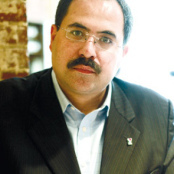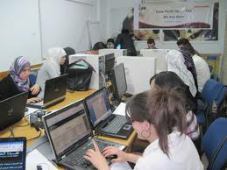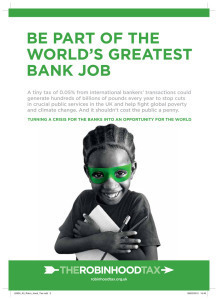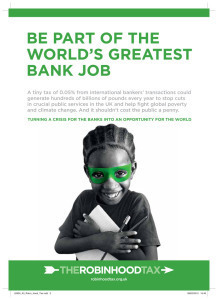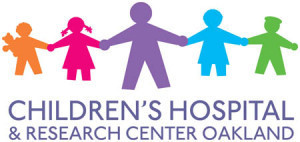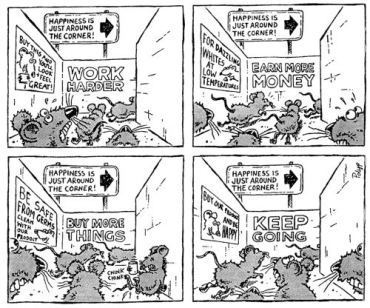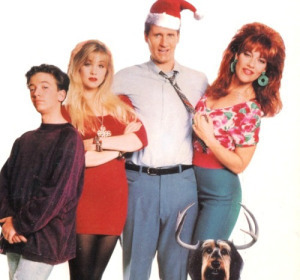Alon Shalev's Blog, page 50
January 9, 2012
Gaza and Facebook Part 1
When you think of Gaza, many images come to mind: poverty, Muslim fundamentalism, frustration, unemployment, Facebook. Facebook? Yes, the Palestinians in Gaza, for all their challenges, is online and connecting.
Dr. Sabri Saidam, a former member of the Palestinian Authority government began getting involved in politics at the not so young age of 34. He was immediately appointed minister of communications and information technology and became known as "Mr. Technology."
"Coming from the IT field, I can tell you honestly that I've always felt as if I were carving in stone – getting computers or talking about e-government in Palestine was mission impossible," he says in an interview with Haaretz, an Israeli newspaper. "Now all the politicians are meeting bloggers and talking to them. There was no party interested in these people until the events in Tunisia and Egypt. They were considered to be time-wasters, kids."
Saidam now works in Washington for the Aspen Institute where he continues to promote entrepreneurship among young Palestinians. "All of a sudden, everybody wants to know and have a private session to talk about Facebook and how they can open an account," he says.
Saidam estimates that half of Palestinian households in the West Bank and Gaza Strip have computers and about 30% are connected to the Internet. As we saw in Egypt and Tunisia, however, this does not include cell phone connectivity.
"When the demonstrations started in Tunisia, there were 600,000 Palestinian Facebook users, and 200,000 of them were posting about politics. Each one of these 200,000 Facebook users is influencing five people around him. We're talking about over a million Palestinians over the age of 18. In terms of population size, that's 33 percent. In Egypt, that would be 28 million Egyptians, but there it took only 2,890 bloggers and computer activists to do what was done. The moral of the story is that there is a critical mass of Palestinians waiting to see how things are going to swing."
Saidam believes that access to a wider discussion group and opinions will broaden the political debate within Gaza and include the younger generation, who make up the majority of the population in Gaza. "But there is no Palestinian Wael Ghonim [the young Google marketing executive who became a symbol of the revolution] . . . It's the issue of getting bored of the fact that they see leaders who existed for dozens of years. They don't want any leaders."
It was the younger generation of Palestinians who marched on March 15 demanding an end to the conflict between Hamas and Fatah. This prompted President Abbas to decide he would go to Gaza and flesh out the subsequent agreement.
"The young people felt they had some influence on the decision," says Saidam. "And I am telling my peers that they should not only passively listen but allow young blood to flow into the decision making of the parties."
——————————————————————————————————
Alon Shalev is the author of The Accidental Activist and A Gardener's Tale. He is the Executive Director of the San Francisco Hillel Foundation, a non-profit that provides spiritual and social justice opportunities to Jewish students in the Bay Area. More on Alon Shalev at http://www.alonshalev.com/ and on Twitter (#alonshalevsf).








January 6, 2012
Robin Hood Politics Pt. 2
On Wednesday I discussed the Robin Hood Tax initiative where I praised those, especially the rich people who are embracing the idea.
I portrayed the Obama administration as being against, primarily out of fear that investors would go abroad with their money. The case is not so clearly defined. According to one administration official, there is actually support precisely to curb the risky activities that led the crises in the first place.
"The president is sympathetic to the goals that a financial transactions tax is trying to achieve and he is pushing for a financial crisis responsibility fee and closing other Wall Street loopholes as the best and most feasible way to achieve those goals," the administration official said.
Labor unions and groups are supportive and organizing demonstrations in favor, They envisage the taxes levied to help finance job creation programs.
"The tax is a good idea because banks are where the money is. It's the same reason Jesse James robbed banks," said Rose Ann DeMoro, executive director of National Nurses United, which recently held demonstrations at the offices of 60 members of Congress in support of the levy. "The thing about the financial transactions tax is it's stunning how quickly people get it and how fast they embrace it."
I got the impression that Bill Gates and President Sarkozy envisaged using the money to help development in the worst areas of poverty, which I assume mean in Africa and Asia. Other political leaders are probably imagining using this as revenue to help plug government deficits.
We should not forget that this is a tiny tax for the individual. The EEC proposed a tax of $10 for $10,000 worth of transactions throughout the European Union which could raise $77 billion a year just in Europe.
An American version of this bill (imposing a $3 tax per $10,000 of transactions) might raise $350 billion over the next decade. Kudos for some rare bi-partisan cooperation to Representative Peter DeFazio, an Oregon Democrat, and Senator Tom Harkin, an Iowa Democrat.
Mr. DeFazio envisaged the tax could "raise money to invest in the real economy," but even he and his partner are skeptical the Republican caucus in Washington would accept any form of new taxes.
The opposition is already gathering, citing a fear that people will slow their investment rates. Kenneth E. Bentsen Jr., executive vice president for public policy at the Securities Industry and Financial Markets Association, released a statement saying:
"At a time when we face a slow economic recovery, such a tax will impede the efficiency of markets and impair depth and liquidity as well as raise costs to the issuers, pensions and investors who help drive economic growth,"
The British Chancellor of the Exchequers, George Osborne, called the proposed tax "economic suicide." In this time of economic crisis, he said, the European Union "should be coming forward with new ideas to promote growth, not undermine it."
Opposition on this side of the pond comes from Glenn Hubbard, past chairman of the Council of Economic Advisers under President George W. Bush. He described the Robin Hood tax is a "monstrously bad idea."
"Such a tax isn't really going to get at the banks," added Hubbard. "It's going to hit the people who own the assets that are traded," like investors.
If you think Hubbard is just crying from the political bleachers, think again. He is currently an adviser to Republican presidential candidate Mitt Romney.
Ironically Britain, Hong Kong and Singapore (the latter two can be proud of the growth of their financial markets) all have such a tax in place. In fact, and please don't tell the Republicans, the US had imposed a tiny tax on stock trades between the years1914 – 1966. Socialists!
Finally, let's remember why this tax is being proposed in the first place. There are too many people in this world who are starving, denied medicine and clean water, suffering from diseases that can be cured. And, as the British actor Bill Nighy, has described it, this is "a beautiful idea."
"It would raise enough money to solve problems at home and overseas, and it could do it without hurting ordinary people," Mr. Nighy said.
So simple. So true. So possible.
——————————————————————————————————
Alon Shalev is the author of The Accidental Activist and A Gardener's Tale. He is the Executive Director of the San Francisco Hillel Foundation, a non-profit that provides spiritual and social justice opportunities to Jewish students in the Bay Area. More on Alon Shalev at http://www.alonshalev.com/ and on Twitter (@alonshalevsf).








January 5, 2012
Political Progress – Roger Ingalls
It's a new year! Time to start anew…out with the bad and in with the good. Last year, 2011, was bad for many of us and we couldn't be happier that 2012 is finally here.
I usually blog about politicians and government policies that are stupid or wrong and occasionally explain what I would do if I were king. This typically involves focusing on the negative. Since it is a new year, I resolve to focus on the positive. Instead of pointing out badness, my goal is to highlight goodness for the sake of happiness or bring attention to things that are working well and give my opinion on how we can expand on them.
This is my first post of the year and there is a positive to discuss. It's no secret that I lean to the political left but yesterday's Republican Iowa caucus was very interesting. The folks in Iowa stunned me; they made me proud to be an American.
The last time the voting public made me proud was the day a black man, Barack Obama, was elected president. I thought it would never happen in my lifetime; that was truly a great day.
What was so positive about the Iowa caucus? Mitt Romney, a Mormon, won! This may be more amazing than the 2008 presidential election. When was the last time a non-Christian or modified Christian (depending on how the Mormon faith is defined) won a presidential primary or caucus? In today's fanatically Christian American, this is shocking.
We haven't hit the primaries in the Bible Belt and once we do, I'm sure Mr. Romney will lose a few. But today I'm proud of the Iowa voters for seeing past religion to make a selection based on other criteria.
It's a small progressive step.
———————————————————
Roger Ingalls is well traveled and has seen the good and bad of many foreign governments. He hopes his blogging will encourage readers to think more deeply about the American political system and its impact on US citizens and the international community.








January 4, 2012
Robin Hood Politics Pt. 1
I grew up in England's green and somewhat socialist land hearing stories and watching movies about one Robin Hood, who lived in Sherwood Forest and robbed from the despotic rich to give to the poor. When King Richard the Lionheart came home from the Crusades having either liberated or massacred everyone in the name of freedom (freedom to be a Christian), and forgave Robin, restoring him as a member of the English aristocracy and letting him marry the king's niece. Trust me, the movies tell it much better.

Oh Kevin - your aim if not your accent was true!
However, Robin of Loxley's name is now being associated with a new tax idea: a seemingly insignificant levy on trades in the financial markets which would take money from the banks (the despotic rich) and give to the world's poor. This would apparently be a tax on trades of stocks, bonds, and similar financial tools of investment.
The reality is that most of this support stems from our anger and frustration at how the world economy collapsed without the rich taking a significant hit. Right now we would happily hang the bank and monetary institutions heads in the village square, or at least stick them in the stockades and throw rotten dividends and pink slips at them.
Sir Robin (who was originally a member of the landed class – the top 1%) has attracted an exciting band of merry men (and women): the leaders of France and Germany, the billionaire philanthropists Bill Gates and George Soros, former Vice President Al Gore, the consumer activist Ralph Nader, Pope Benedict XVI and the Archbishop of Canterbury.
Now personally I am suspicious that the Pope would associate with Robin Hood, given the latter's allegiance to the Church of England, but perhaps the Pope is being more strategic than his predecessors.
German Chancellor, Angela Merkel, who I began to trust when she got annoyed at President Bush trying to give her a public massage, told the German Parliament that "We all agree that a financial transaction tax would be the right signal to show that we have understood that financial markets have to contribute their share to the recovery of economies."
The Italian Prime Minister, Mario Monti, has jumped enthusiastically into the foray by announcing his plans to impose such a tax as one part of a broad plan to fix his country's ailing economy. He further invited other European countries to endorse the initiative.
Other European leaders seem are not so enthusiastic which seems a shame given that a number of analysts believe a broad agreement could create such a tax while keeping the financial markets (or rather those who are making tons of money from it) relatively calm.
Simon Tilford, chief economist of the Center for European Reform in London claims that "There is some momentum behind this…If they keep the show on the road, they probably will attempt to run with this."
As the Occupy Wall Street movement seems to wind down, I believe this can be a rallying cry with a practical, measurable outcome. I have written previously about my desire for the Occupy movement to become more strategic (see here and here). Members of the Occupy movement were already sporting bows and arrows, along with green and brown Robin Hood outfits (I used to have one, but would never wear the tights – part of my repressed British childhood, I guess) at the G20 Nations summit last month.

Frederic Nebinger/Getty Images -Demonstrators in Nice, France, last month urged the leaders of the Group of 20 nations to do more to help the poor.
At the summit, Bill Gates, who as we know is quite well off actually presented a plan similar to the goals of the Robin Hood movement, including a modest tax on trades of financial instruments that could generate $48 billion or more annually from the G-20 countries. I want to take this moment and, with the greatest respect, doff my green cap and feather to Mr. Gates. He is a member of the 1% who really cares.
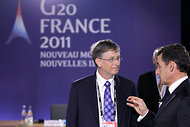 Charles Dharapak/Associated Press – Bill Gates talked with Nicolas Sarkozy about a tax on trades of financial instruments.
Charles Dharapak/Associated Press – Bill Gates talked with Nicolas Sarkozy about a tax on trades of financial instruments.
His proposal garnered support from Ms. Merkel and France's president, Nicolas Sarkozy, There are, of course, those who oppose the tax initiative, not surprisingly from the rich and their minions in the seats of power of the UK and USA. Britain's prime minister, David Cameron, expressed serious reservations, saying "Britain would embrace it only if it were adopted globally." This stems from a fear that if England was to adopt such a tax, investors would simply take their business from the London Stock Exchange and head elsewhere to countries who have not adopted this tax initiative.
This sentiment is supported here in the US by the Obama administration who fear that unless it is global, driving trading overseas would hurt pension funds and individual investors as well as financial institutions.
More on this on Friday.
——————————————————————————————————
Alon Shalev is the author of The Accidental Activist and A Gardener's Tale. He is the Executive Director of the San Francisco Hillel Foundation, a non-profit that provides spiritual and social justice opportunities to Jewish students in the Bay Area. More on Alon Shalev at http://www.alonshalev.com/ and on Twitter (@alonshalevsf).








January 3, 2012
Republicans are Playing to Lose – Tom Rossi
It should be clear by now that the Republican Party doesn't want to win the presidency in 2012. Why would they? Things are going great for the 1%… profits are skyrocketing, "labor costs" are falling, corporations are legally human beings when it comes to rights but not when it comes to responsibility or accountability – great. Better yet, the people who wish these things were different blame President Obama for the worsening condition of the American middle class. Why screw with the perfect arrangement?
This lack of purpose explains the clown college graduation ceremony that we see every other week on TV in the form of Republican "debates."
I can almost see their managers in the dugout: "Swing toward right field! I don't care if you get a hit, just swing that way anyway!" How far right do they swing? Sometimes-frontrunner Newt Gingrinch [sic] went as far as to suggest a return to child labor in having school children replace janitorial staff. Wow.

In recent years, it was the Dems who didn't want to win (remember when the best they supposedly had to offer was Michael Dukakis???). Why? Well, the Democratic voters wanted to win, thinking (mostly mistakenly) that it would make a difference. But Democratic politicians are themselves members of the 1%, for the most part, as are the powerful people who pull their marionette strings. Their true, underlying desires were for the same as the Republicans – lower taxes on their investments and less interference with getting even richer.
This system of regression has worked beautifully for the masters of our country. The "he said, she said" (Dems said, Reps said) routine has distracted America perfectly while we've happily bumbled our way toward the real goal – 1929. That was the last time the economic imbalance in this country reached such an outrageous level. You know what happened next.
-Tom Rossi
___________________________________________________________________________
Tom Rossi is a commentator on politics and social issues. He is a Ph.D. student in International Sustainable Development, concentrating in natural resource and economic policy. Tom greatly enjoys a hearty debate, especially over a hearty pint of Guinness.
Tom also posts on thrustblog.blogspot.com
___________________________________________________________________________








January 2, 2012
I Think I Used to Care… – Norman Weekes
I saw Papa Jack (not his real moniker) on TV the other night. He was standing in front of Children's Hospital in Oakland at a press conference, looking dapper as usual. There's a long list of places I don't want to be and Children's Hospital is on that list. I already visited Children's Hospital, sans press conference. Earlier this year my grandson was rushed there after suffering seizures due to high fever. He was eventually released complication free but I hope I never go back. Papa Jack was standing in the background while the father of 23 month old Hiram Lawrence Jr. explained to the press that although his son was shot in the head during a shooting his boy and his faith was strong.
I know Papa Jack from bible study class. Papa Jack is a man in his late 40's or early 50's. The "papa" designation comes a bit earlier in the black community these days. He's a man of faith without complication, unlike myself. He's a smart dresser, always quick with a laugh or hello, warmly approachable and direct without offense. Now his grandson was on life support.
This particular shooting was much publicized because it had all the elements TV news can't resist. Grainy nighttime footage of the shooters in action, random nuttiness, a baby victim, a rapper's painted marketing van shot up at the scene and local media's favorite crime canvass, Oakland. This is not the first time a member of our congregation has had their faith tested in the most unimaginable way. Over the summer a young mother lost her son in a shooting, a deacon's nephew was shot and killed a few weeks back and if I were closer to the church I'm sure I could come up with a few more. And that's only this year.

Fatalities in Oakland 2011
When I hear of a hedge fund manager going to jail for five or ten years I don't feel much sympathy for him or her (when will women start pillaging our financial system? Or are they different?). I don't have empathy for the children suffering behind the gated mansion or the difficult adjustment his wife will have getting by on 50 or 60 million after lawyer fees and fines. I just don't care. I think when the grandchildren and children of the Papa Jack's of the world are gunned down, poorly educated, polluted and pissed on most people who don't know people like Papa Jack just don't care. I understand the moral equivalency doesn't quite work but what is true is I don't feel bad for the problems the of privileged. I don't think they feel much for me to people like me either. Is there something wrong with that?
I don't have some pompous pious answer to this one. I just think there was a time where we all cared about each other much more. If anyone can tell me how we got from there to here, please let me know. Unless you just don't care.
Postscript: Hiram Lawrence Jr. was taken off life support Friday, December 9th, 2011.
—————————————————————————————-
Norman Weekes is a volunteer in social justice non profits, account executive looking for work and occasional political activist.








December 30, 2011
Let's Talk About Sex
This is the last post of the year, so please allow me some bandwidth with regard to the contents of this blog. Each of my political novels include at least one, if not two, sexually explicit scenes. They are vivid and leave little to the imagination.
I have now heard from three people over the last eight months who do not approve of the inclusion of these sex scenes. They are not Bible-thumping fundamentalists (as far as I know) and, in fact, seem to fit into my target audience – politically aware, ideological, articulate, educated.
One man might not even have complained if it wasn't for his 16 year-old daughter reading the novel and excitedly passing it around her friends. One of the friend's mother was not impressed with his choice of literature! Another person, a book reviewer, gave The Accidental Activist a very nice review, but withdrew her offer of a free giveaway copy because she wasn't sure if her audience was over 18. A third told me that it turned her off the book and she only continued because she knew me and felt committed to read it.
For the record, my mother also doesn't approve, but I think I am more uncomfortable knowing that she is reading these scenes than she is.
And yet I feel compelled to include these scenes. Why?
Firstly, I enjoy writing them and, even more so, imagining them. I think I would be cheating you if I didn't admit it.
But maybe more importantly, (otherwise I would just be writing erotic literature – which might be more profitable if less fulfilling) is the care and effort that I put into my characters. I love them, even the bad guys. And I want you to love them too. The only way I can achieve this is to expose all their characteristics there on the page.
Sex is a vital component in my own relationship experience. No one would question that you learn so much about your partner by the way they make love and interact intimately. Sex makes us open up to each other, share our fears and joys, and tells us so much about that person without having to explain it. Show Don't Tell we are always told – well, it doesn't get any easier than this. Such revealing scenes allow us to move along in the developing relationship between characters that might take several chapters to captivate.
The way we relate to sex also reflects upon the kind of society, the mores and values of a religion, community, country, wherever the book takes place.
While it is important to me to reveal the deeper levels of my characters' feelings and emotions, I do not want to turn people away because of the sex scenes. It is more important for me to inspire and empower people through the actions of my characters. I have written before about Transformational Fiction, if you haven't read it, please click here to understand what common theme runs through my novels, this blog and my website.
I write from the heart and this is how I want my characters to be judged. I don't think of myself as writing romance, but it is there because deep down I do not want people to live alone. Finding a soul mate can be the most affirming and empowering thing we ever do. Nurturing such a relationship requires far more than compatible sexual satisfaction. It involves communication, empathy, a desire to see your partner happy and fulfilled.
But the physical is a distinct piece in the puzzle and for this author, allows the characters to share themselves with the reader on a far deeper level. Perhaps I can afford to annoy or upset a few readers along the way in order to achieve the connection between reader and character. If you are one of those people who has difficulty with sex scenes, please feel free to skip those pages. No one will ever know and I prefer you do this and get to the end of the book.
————————————————————————————————————————————————————————————————————-
Alon Shalev is the author of The Accidental Activist and A Gardener's Tale. He is the Executive Director of the San Francisco Hillel Foundation, a non-profit that provides spiritual and social justice opportunities to Jewish students in the Bay Area. More on Alon Shalev at http://www.alonshalev.com/ and on Twitter (#alonshalevsf).
.








December 29, 2011
Gold Standard Hogwash – Roger Ingalls
The country's sad economic state has renewed the cry for a return to the Gold Standard. A significant percentage of the population as well as presidential candidates are endorsing this form of monetary system. Fiat Money Systems are used by most countries (including the U.S.) which normally require tight regulation and active monitoring to thwart abuse and corruption. The recent financial crisis was caused by conservative policies that deregulated the banking industry which opened the door for unethical practices induced by greed. Wall Street's failure to "self-police" has rekindled interest in the Gold Standard.
It is my belief that moving to a precious metal standard will not fix problems facing the people of this country (USA) or the world's masses. It may unify currency across the globe but it's still just another form of money significantly controlled by the wealthy few.
If we're going to entertain the idea of changing our monetary system, let's go all out. Let's develop a system that empowers today's masses and future generations. Let's create a system that produces wealth based on conservation, cooperation and increases with the participation of many.
The basis of life is energy. Every life force needs some form of energy to exist. Therefore, a true and unifying currency would be some sort of energy unit, such as a Joule or Calorie. The value of energy is understood in the U.S., China and even aliens from outer-space would understand its worth.
I realize that this initially sounds like a wild idea but think about it for a few minutes and it starts to make sense. Keep in mind that all forms of energy are somehow derived from the Sun. Oil, coal and natural gas are fossilized ancient life forms that once received energy from the sun. Even elements used to create nuclear power owe their existence to solar activity.
This blog site (leftcoastvoices.com) will post more on energy unit currency in the near future but in the meantime, here is some information that will hopefully inspire you to think more about the subject:
Mother Nature takes the path of least resistance because it conserves energy.
Calories are a form of energy unit. There are 90 calories in a large head of lettuce and 540 calories in a Big Mac. The current price of lettuce is $2; therefore, a Big Mac should cost $12 in a true free-market.
The energy from one gallon of gas in equal to 408 man hours of work. The minimum wage in CA is $8 so a gallon of gas should cost $3264.
If energy was priced appropriately, conservation would be adopted quickly.
If energy was priced appropriately, food would not travel the average 1500 miles it now takes to get to your dinner table. Lettuce grown in CA would not be shipped to New York.
A monetary system based on energy will automatically promote sustainability in all aspects of human existence.
Humans consume food energy and transform it into mechanical energy.
People working together cooperatively are more efficient and can produce more (community).
A Gold Standard is hogwash. An Energy Standard would promote human equality, builds community, protects the environment and create a happier existence. A system like this brings to light the true cost of energy and inherently promotes sustainability through local production. Local production creates local jobs.
Of course, big business, Wall Street and the banks would never allow a conversion to a monetary system that draws attention to conservation. They need debt to create wealth.
More to come!
—————————————————–
Roger Ingalls is well traveled and has seen the good and bad of many foreign governments. He hopes his blogging will encourage readers to think more deeply about the American political system and its impact on US citizens and the international community.

December 28, 2011
The Internet Cost Him His Freedom
My novel, The Accidental Activist, illustrates the empowerment of the Internet in the face of great power. Unfortunately, in the real world, it doesn't always work that way. Though the two individuals who stood up to McDonald's in England (the real story that The Accidental Activist is based upon) were able to use the Internet to defend themselves, it can be a double edged sword.
Shi Tao, a journalist in China discovered that and is still paying the price. Here is his story in 30 seconds.

In 2004, Shi Tao sent details of government plans to restrict the activities commemorating the 15th anniversary of the pro-democracy rally in Tienanmen Square. Apparently he sent the information through his Yahoo email account, and Yahoo gave the information to the Chinese security forces. Shi Tao is now in prison for 10 years.
In 2007 he received the Golden Pen of Freedom award by the World Association of Newspapers. Tao's family is apparently suing Yahoo and they are not the first. While I wish to condemn Yahoo, we do need to focus our attention on China and freeing Shi Tao.
Suggestions of how to help can be found at Shi Tao's Amnesty International page. I plan every year, during Chanukah, the Jewish festival of Freedom to blog about Shi Tao until he is released. I ask that you help because the only hope that Shi Tao has is that we do not forget him.
——————————————————————————————————
Alon Shalev is the author of The Accidental Activist and A Gardener's Tale. He is the Executive Director of the San Francisco Hillel Foundation, a non-profit that provides spiritual and social justice opportunities to Jewish students in the Bay Area. More on Alon Shalev at http://www.alonshalev.com/ and on Twitter (#alonshalevsf).

December 27, 2011
Holiday Escapes – Tom Rossi
Good escapes and bad ones.
Ahhhh. Christmas was yesterday and we are in the midst of what most can agree to call, "The Holiday Season," which includes Chanukah, Kwanzaa, Ramadan (in some years), and maybe others I don't even know about. The winter holidays afford us an escape from the rat race. While it's true that, for many, the year-round rat race is just exchanged for the holiday rat race, it still represents a change from the monotony.
If you're lucky, the holidays are a chance to reconnect with family and friends. Planning these rendezvous can be stressful in and of itself, but hopefully they are worth it. The chance to hug your mom for the first time in months, to watch your new nieces and nephews play with new toys, and to catch up with siblings, cousins, friends, and the guy who has stood on the corner every day for 17 years hitting himself in the head with a dead chicken can be priceless.
This time of year presents the opportunity to revel in all that is really important and good about this human existence. It isn't required that you go all Norman Rockwell on us, just smile, talk, eat, sit next to a fireplace with loved (or liked) ones, and maybe even get out and hike or ski among the trees (if you can find some snow, somewhere). This is positive escapism.
Positive escapism isn't an escape from reality – it's a temporary escape from certain, tiring elements of reality – the commute, the office politics, the everyday drudgery.
In contrast, everyday escapism is one of the things that, in my opinion, contributes to the deterioration of our socio-economic structure. It's great to watch a movie or a hockey game or maybe play a video game, but if all of your free time is dedicated to things like this, you can basically tune out real information or just never notice it in the first place.
I think this is one explanation for people saying things like: "It was cold at my house last night, so there's obviously no global warming going on." If you spend all your free time entertaining yourself and you stop learning, you can just keep thinking whatever you want, right or wrong.
So again, sorry for this brief interruption to your holiday. Please go on laughing at the same jokes your father has told 175 times. Drink an egg nog (with rum or without). Cherish the great gifts that you have. It took a trip to death's door to wake me up to what a great family I have and what great friends. I'll spare you the details, but I'll just say again, Happy Holidays.
-Tom Rossi
___________________________________________________________________________
Tom Rossi is a commentator on politics and social issues. He is a Ph.D. student in International Sustainable Development, concentrating in natural resource and economic policy. Tom greatly enjoys a hearty debate, especially over a hearty pint of Guinness.
Tom also posts on thrustblog.blogspot.com
___________________________________________________________________________









